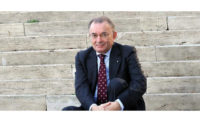MAPEI's Dr. Squinzi elected CEFIC president
Dr. Squinzi replaces Christian Jourquin, ceo of Solvay. Squinzi is the most recent businessman to be
elected to the leadership of CEFIC, which has mostly been chaired by foundation
managers since its founding in 1972.

MAPEI Group’s ceo, Giorgio Squinzi, has been elected president of CEFIC, the European Chemical Industry Association. CEFIC’s 29,000 member companies operating in Europe account for a quarter of the world chemical production and employ approximately 1.2 million employees.
Squinzi takes the place of Christian Jourquin, CEO of Solvay. Squinzi is the most recent businessman to be elected to the leadership of CEFIC, which has mostly been chaired by foundation managers since its founding in 1972.
“I think the European chemical industry’s strategy will be most successful if based on three pillars that are the foundation of MAPEI: innovation, internationalization and specialization. In Europe, manufacturers can better compete in a market that has rapidly become global when they have invested strongly in Research and Development projects that lead to innovative new products,” said Squinzi, who is also president of Federchemica, the National Federation of the Italian chemical industry and Chairman of the Technical Committee responsible for Europe in the business group Confindustria.
Squinzi will be leading CEFIC for the next two years, where he will face a period of difficulty within the European chemical industry as it seeks growth in the global chemicals market. “European production continues to grow, but more slowly than emerging competitors from Asia. Europe needs to increase investment in chemical research in order to strengthen its competitiveness in this high tech industry through the development of more advanced products that show greater innovation.”
Although Europe lost its first-place ranking in terms of global sales among geographic regions for the first time in 2009, the European chemical sector’s surplus was 42.6 billion Euros, a relatively strong showing considering that the chemical industry accounts for only 1.1% of Europe’s GDP (gross domestic product). Despite this strong surplus and the sustainability achievement of a 42% reduction in greenhouse gas emissions since 1990, the public perception of the chemical industry is not as favorable as it could be. The annual CEFIC-led survey, which measures public perceptions of the EU chemical industry, found that respondents ranked the chemicals sector sixth out of eight benchmark industries.
“The findings of the survey demonstrate the need to tell our story better, especially to young people,” concluded Squinzi. “Students will have the opportunity to learn more during the International year of Chemistry in 2011, when we will have the chance to demonstrate how the industry is able to provide solutions to the ever-increasing needs of society.”

MAPEI Group’s ceo, Giorgio Squinzi, has been elected president of CEFIC, the European Chemical Industry Association. CEFIC’s 29,000 member companies operating in Europe account for a quarter of the world chemical production and employ approximately 1.2 million employees.
Squinzi takes the place of Christian Jourquin, CEO of Solvay. Squinzi is the most recent businessman to be elected to the leadership of CEFIC, which has mostly been chaired by foundation managers since its founding in 1972.
“I think the European chemical industry’s strategy will be most successful if based on three pillars that are the foundation of MAPEI: innovation, internationalization and specialization. In Europe, manufacturers can better compete in a market that has rapidly become global when they have invested strongly in Research and Development projects that lead to innovative new products,” said Squinzi, who is also president of Federchemica, the National Federation of the Italian chemical industry and Chairman of the Technical Committee responsible for Europe in the business group Confindustria.
Squinzi will be leading CEFIC for the next two years, where he will face a period of difficulty within the European chemical industry as it seeks growth in the global chemicals market. “European production continues to grow, but more slowly than emerging competitors from Asia. Europe needs to increase investment in chemical research in order to strengthen its competitiveness in this high tech industry through the development of more advanced products that show greater innovation.”
Although Europe lost its first-place ranking in terms of global sales among geographic regions for the first time in 2009, the European chemical sector’s surplus was 42.6 billion Euros, a relatively strong showing considering that the chemical industry accounts for only 1.1% of Europe’s GDP (gross domestic product). Despite this strong surplus and the sustainability achievement of a 42% reduction in greenhouse gas emissions since 1990, the public perception of the chemical industry is not as favorable as it could be. The annual CEFIC-led survey, which measures public perceptions of the EU chemical industry, found that respondents ranked the chemicals sector sixth out of eight benchmark industries.
“The findings of the survey demonstrate the need to tell our story better, especially to young people,” concluded Squinzi. “Students will have the opportunity to learn more during the International year of Chemistry in 2011, when we will have the chance to demonstrate how the industry is able to provide solutions to the ever-increasing needs of society.”
Looking for a reprint of this article?
From high-res PDFs to custom plaques, order your copy today!





